Dear Readers,
June is an important month for the LGBTQIAN+ community, known as Pride Month, a time to celebrate diversity and recognize the long-standing struggle for equal rights and societal acceptance. This month, JELI celebrates the diversity and progress of the LGBTQIAN+ rights movement both in Thailand and around the world, acknowledging the intersection of labor and LGBTQIAN+ rights. JELI continues its ongoing efforts to advocate for labor rights, and in this newsletter, we have compiled the month’s developments throughout June.
➔ JELI’s Director attended the Transnational Summer School for Community Organizers, Educators, & Artists under the title “The Lost Art of Organizing Solidarity” in Vienna, Austria and presented on the topic of recent challenges and struggles of the labor movements in Thailand and Asia.
➔ JELI officers attended 2024 Southeast Asia Subregional Exchange Meeting of GLP-POWER focused on the theme “Gender Issues in the Informal Economy: Challenges of Women & Marginalized Informal Workers.”
➔ JELI, in collaboration with the Southern Riders Association, organized an educational event in Trang Province, with riders from all platforms participating.
➔ JELI held the 2nd Participatory Workshop on Organizing Migrant Workers for Trade Union in Mae Sot district, Tak province and conducted field visits to migrant worker communities in Mae Pa subdistrict in collaboration with YCOWA.

JELI’S WORK THIS MONTH
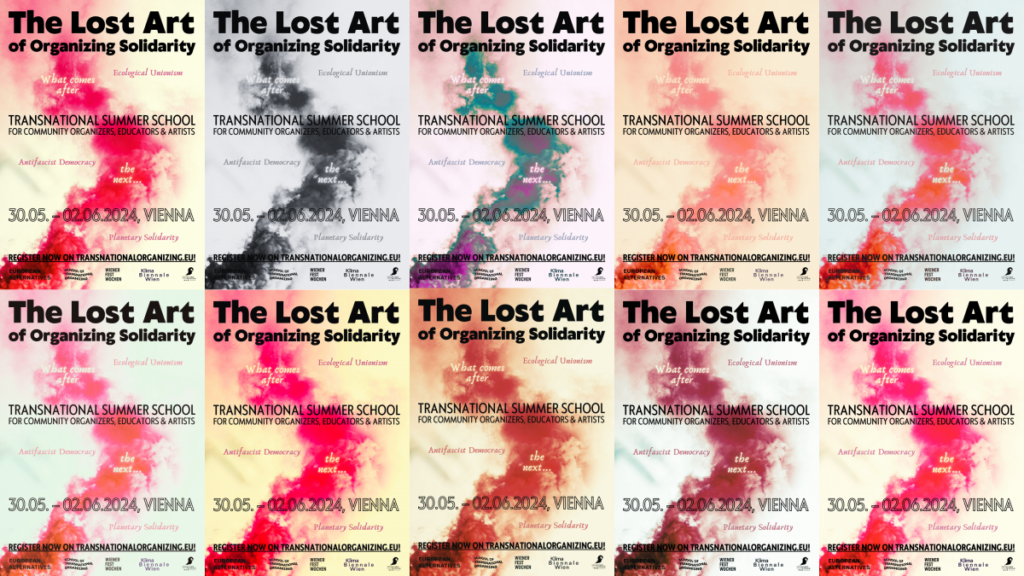
Dr. Kriangsak Teerakowitkajorn, Director of the Just Economy and Labor Institute, attended the Transnational Summer School for Community Organizers, Educators, & Artists under the title “The Lost Art of Organizing Solidarity” in Vienna, Austria.
The Summer School, titled “The Lost Art of Organizing Solidarity,” took place from May 30 to June 2, 2024, as part of the Wiener Festwochen | Free Republic Vienna at the Volkskundemuseum Wien (Austrian Museum of Folk Art). European Alternatives, the main organizer, brought together civil society researchers, artists, urban grassroots movements, feminist activists, and anti-fascist groups from the East, South, North, and West of Europe
and beyond the Mediterranean to learn from each other’s stories, skills, and strategies. They sought answers to one of the most pressing questions of our time: how can we unite and fight across differences and beyond the borders of communities, struggles, and nations?
Apart from cultural events and discussions, the program involved a one-day showcase of stories, struggles, and strategies, and a one-day workshop on innovative strategies and emerging concepts. It also featured skill-sharing sessions and open workshops led by volunteers.
On Friday, May 31st, as part of the 50 guests invited internationally, Dr. Kriangsak shared a 10-15 minute presentation about the recent challenges and struggles of the labor movements in Thailand and Asia. He also discussed lessons learned from labor activists in Asia, especially on avoiding the pitfalls of primarily demanding legal protections for freedom of association, and emphasized not to confuse the fundamental work of building
workers’ collective power—organizing—with other activities such as unionizing and mobilizing, which involve experts and activists rather than base-building work.
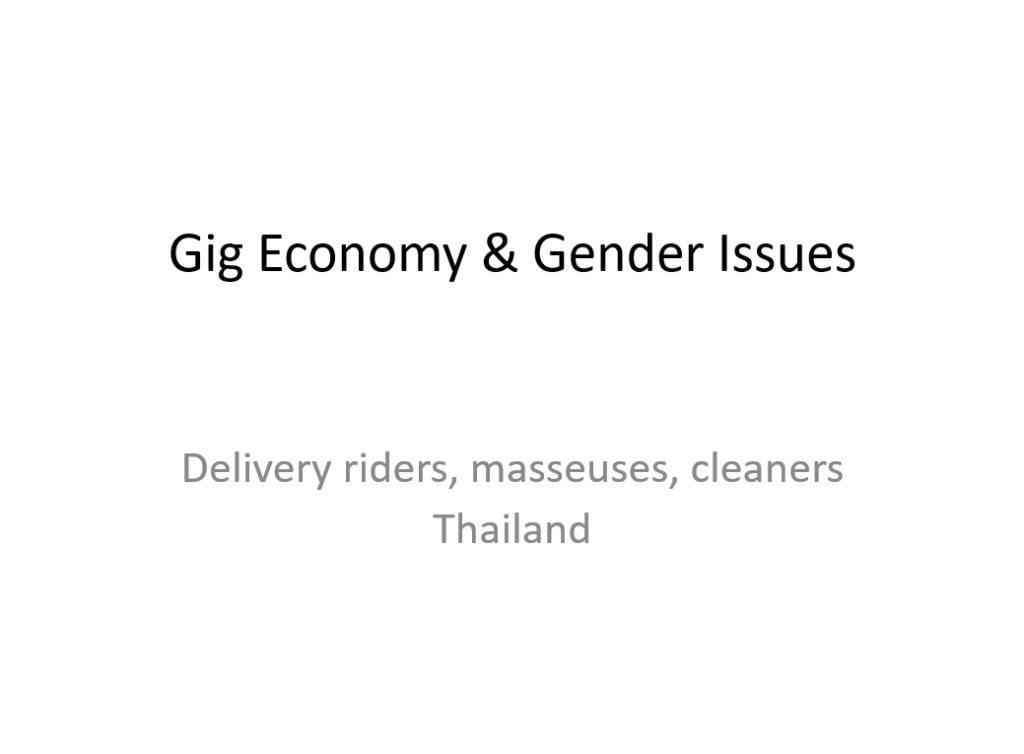
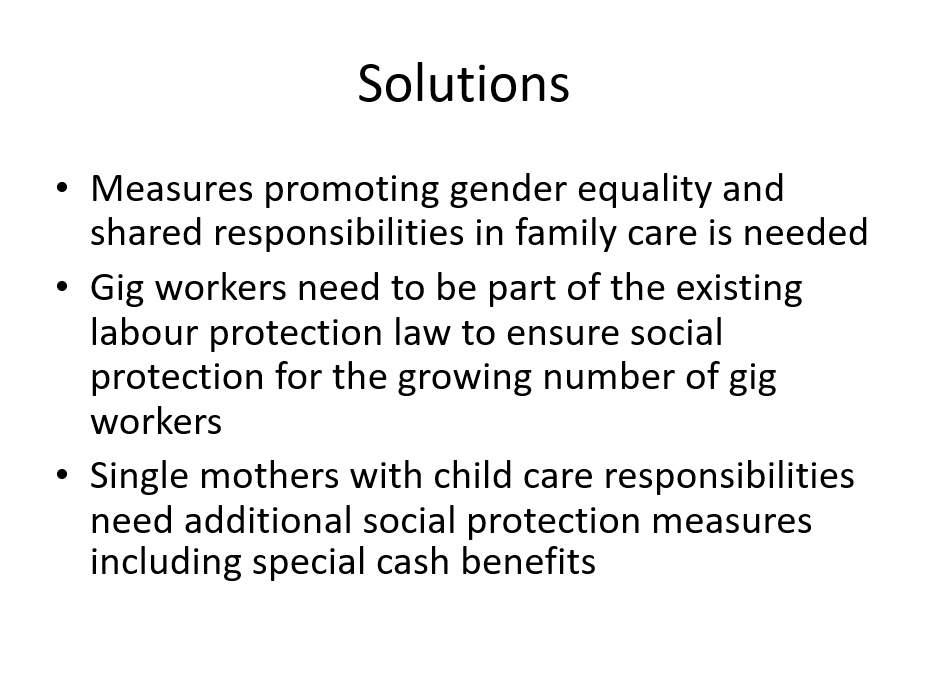
5 June 2024 – JELI officers attended 2024 Southeast Asia Subregional Exchange Meeting of Global Labor Program – Platform for Organizing by Workers for Empowerment and Recognition (GLP-POWER) focused on the theme “Gender Issues in the Informal Economy: Challenges of Women & Marginalized Informal Workers.” The event featured several key presentations addressing the various struggles faced by women and
marginalized workers in the informal economy.
IDEA Cambodia shared their experiences in handling issues faced by their marginalized worker members. LIPS Indonesia presented on the struggles of female workers in palm oil plantations. NSI Malaysia discussed the stories of migrant workers and female plantation workers in Malaysia, and JALA PRT Indonesia highlighted a triple burden of women workers in Indonesia.
JELI focused on gig workers and gender issues. The presentation highlighted the conditions of female workers in Thailand, who primarily enter the gig economy due to family obligations and societal norms that expect women to care for children and the elderly. Women in this situation choose gig work for its flexible hours, but they face challenges such as uncertain income and instability. Additionally, these workers lack social protections such as salary guarantees, maternal and child protection, and coverage for illness or injury.
Many women have to work 12-15 hours a day to earn enough to cover family expenses. They also face occupational safety risks and gender-based violence, particularly single mothers who bear the burden of raising children, often leading to debt. Therefore, promoting gender equality and sharing family responsibilities are crucial. Gig workers, especially single mothers, should be protected by labor laws to ensure they receive equal and fair protection.
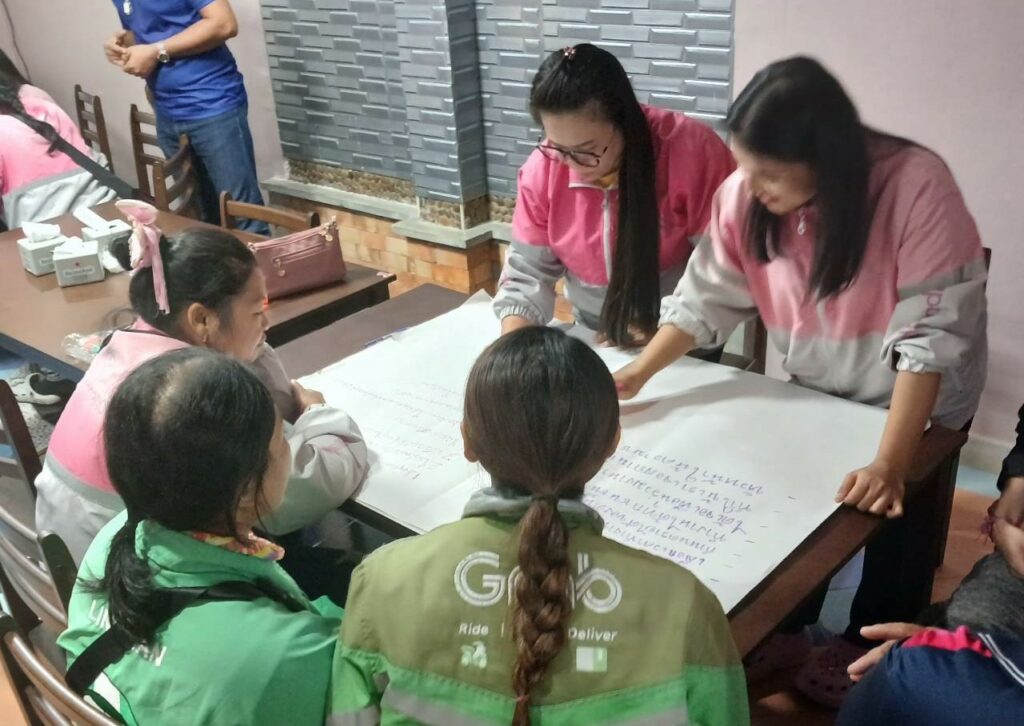
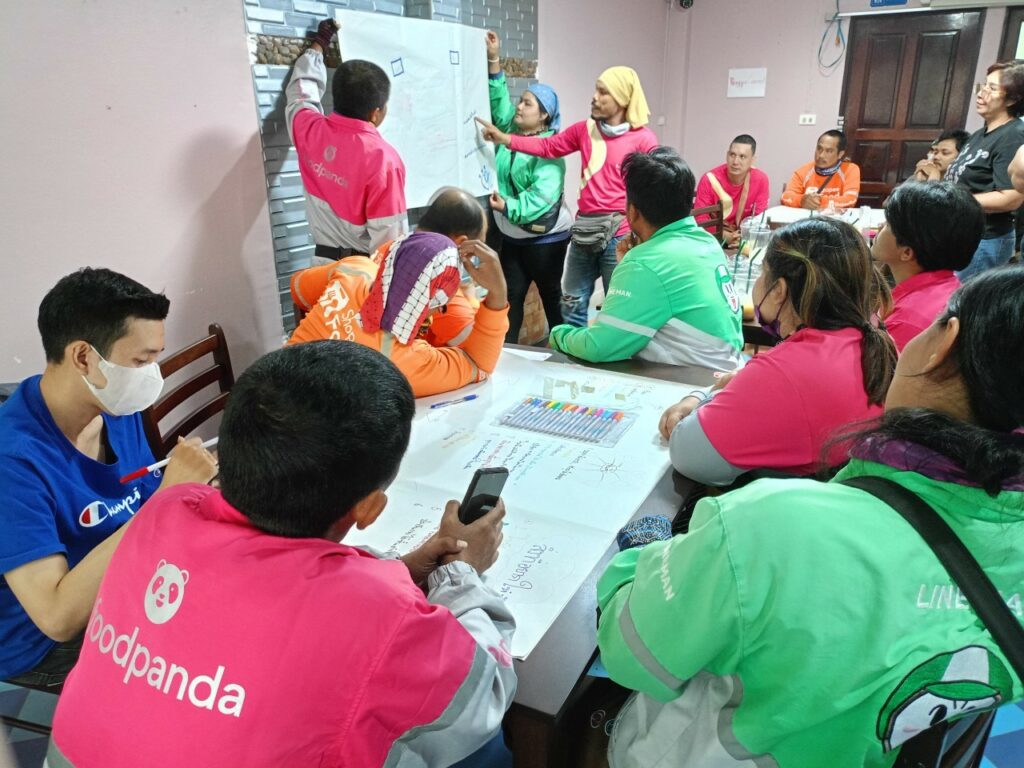
JELI, in collaboration with the Southern Riders Association, organized an educational event in Trang Province from June 19-22, 2024. The event was divided into four sessions, each with 19 participants. A total of 76 riders, both male and female, from all platforms in Trang participated (62 females and 14 males). Among the participants, 30 were new riders who had never attended group meetings before (18 females and 12 males). The participants ranged in age from 27 to 50 years old and were married with families and children.
The discussion topics were divided into two main categories: (1) The advantages and disadvantages of being a rider from the participants’ perspective. The advantages include having time to care for their children and elderly parents. However, the disadvantages encompass unstable income, low pay-per-order rate, living paycheck to paycheck, accruing debts, lacking benefits, and job security. Female riders face the dual burden of working both
outside and inside the home, performing “care work” and (2) Labor rights. As humans, riders have rights that entitle them to workplace safety and compensation for income loss in case of illness, injury, disability, or death. They are entitled to wages sufficient for a good life. They also have the right to collective bargaining to improve work conditions, environments, and other social protections, including welfare for childbirth expenses, child care, children’s education, and healthcare.
Courses of action proposed for addressing these issues:
● Campaigning for labor protection act, social security, and compensation funds for illness, injury, disability, or death from work.
● Educating riders to understand their human rights and labor rights as platform company workers, both multinational and national.
● Disseminating information about the compensation fund and social security law in Line and Facebook groups where riders follow and read news.
● Promoting gender equality with the aim of reducing the burden of care work, which has traditionally been the “duty” of female riders, and encouraging this burden to be shared with men in the household.


30 June 2024 – JELI held the 2nd Participatory Workshop in Organizing Migrant Workers for Trade Union at the migrant workers’ community in Mae Pa Subdistrict, Mae Sot District, Tak Province, in collaboration with Yaung Chi Oo Workers Association. The initial session introduced the Labor Rights and Labor Law B.E. 2541, Social Protection Act B.E. 2533, and legal documentation systems for migrant workers in Thailand. Following this, JELI and YCOWA provided legal consultation to migrant workers on various questions raised by workers in the area who work in plastic factories. This included where to file complaints when employers confiscate personal documents, protection measures from state agencies in cases where workers without documents are unfairly dismissed by employers, and where to contact in cases of sexual harassment. Additionally, workers were informed about the Cabinet resolution from early June, which grants a two-year registration period for workers of four nationalities. Workers were advised to keep up-to-date with information on the process from the government and to delay paying fees to private brokers.
JELI and YCOWA continued discussions on future goals and collaborative approaches to strengthen the collective bargaining power and organization of migrant workers in Mae Sot and relevant areas. The workshop concluded with a visit to the Burmese migrant community in Mae Tao Subdistrict, which includes agricultural and domestic workers, where YCOWA conducted a session to educate the workers on occupational health and safety.
LATEST NEWS
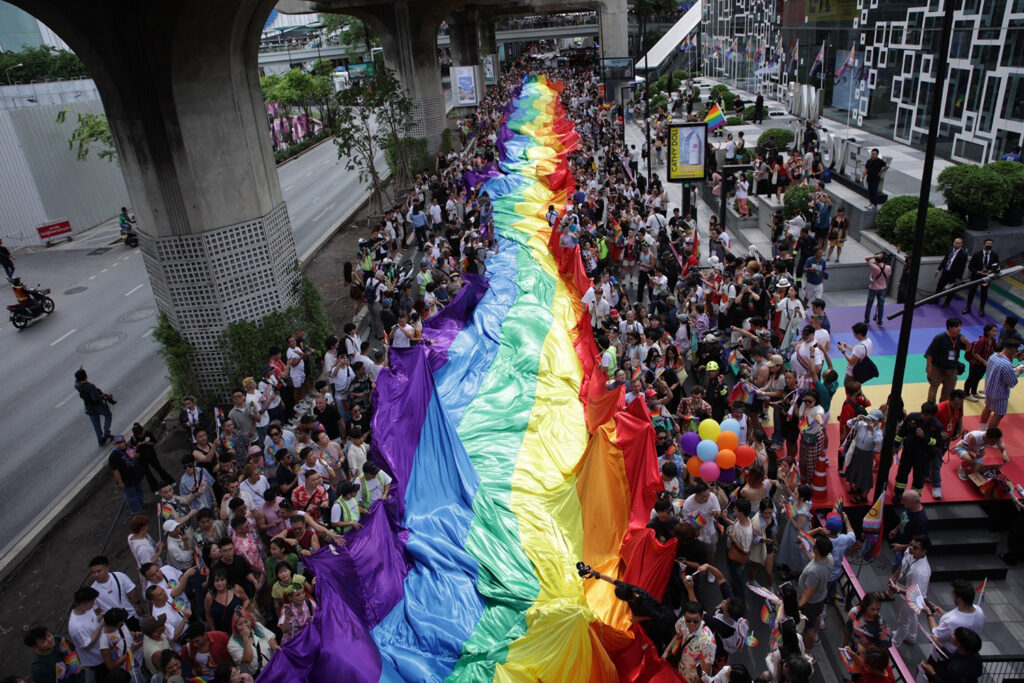
photo by Bangkok Post
Thailand’s Pride Month: Celebrating Progress Towards Equal Rights
June is an important month for the LGBTQIAN+ community, celebrated as Pride Month, highlighting efforts to support equal rights. This year, Pride Month celebrations spread across various provinces in Thailand throughout June. In Bangkok, the Bangkok Pride Festival 2024 and a parade were held on June 1.
The most significant news is the approval of the Equal Marriage Bill, a long-standing demand of the LGBTQ+ community. Following deliberation by members of the House of Representatives since March 27, the latest decision came on June 18, where the Upper House approved the measure in its final reading with 130 votes. Four senators voted against and there were 18 abstentions.
The legislation will be submitted to King Maha Vajiralongkorn for assent. The law will take effect 120 days after its publication in the royal gazette. Once enacted, Thailand will become the third Asian jurisdiction, following Nepal and Taiwan, to legalize same-sex marriage, and the first within ASEAN.
Source: ThaiPBS
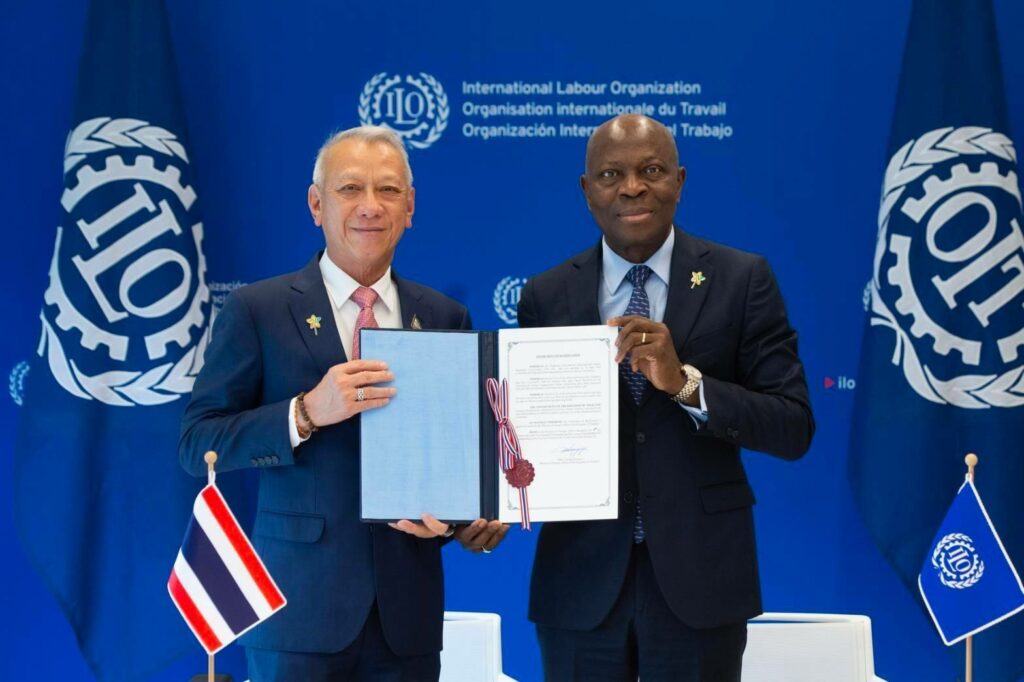
Photo By The Ministry of Labour
Thailand Ratifies ILO Convention No. 144
On June 4th, the Thai Cabinet approved the ratification of the International Labour Organization (ILO) Convention No. 144 concerning Tripartite Consultations (International Labour Standards) of 1976. The instrument of ratification was submitted on June 12 at the United Nations in Geneva, Switzerland, by the Minister of Labour. This makes Thailand the seventh ASEAN country to ratify this ILO convention.
ILO Convention No. 144 mandates that member states establish a tripartite consultation process involving government, employer, and employee representatives to address international labor standards. This process promotes social dialogue, transparency, and inclusivity in economic and social matters by ensuring the participation of all parties
However, Thailand has not yet approved the ratification of ILO Conventions No. 87 and 98, which concern freedom of association and the right to organize and collective bargaining. These fundamental principles are essential for ensuring that workers are protected from exploitation by employers or the state. Most importantly, we must recognize that meaningful consultation cannot occur without genuine workers’ representation and
participation.
Source: Royal Thai Government, Ministry of Labour
The Foreign Worker Management Policy Committee Approves Registration of Undocumented Migrant Workers and 2-Year Work Permit Extensions
On June 5, 2024, The Foreign Worker Management Policy Committee convened its second meeting of the year to address potential labor shortages due to the conflict and economic situation in Myanmar. These issues have turned previously legal migrant workers into undocumented ones, owing to incomplete work permit renewals, failure to change employers within the required timeframe, or the inability to return to their home countries
after completing their employment terms under the MOU. The committee, thus, approved a three-pronged strategy to prevent these problems:
- Registration of Undocumented Workers: Migrant workers from Cambodia, Laos, Myanmar, and Vietnam who are already in Thailand and employed will be registered.
- Work Permit Extensions: Approximately two million workers from the aforementioned countries with work permits expiring on February 13, 2025, will be allowed to renew their permits under the MOU for an additional two years, with a possibility of a further two-year extension.
- Improved Conditions for Seasonal Workers: Conditions for seasonal migrant workers (Section 64) will be adjusted. This includes expanding permitted residence areas, allowing work across agreed areas and authorized residence locations, and requiring return through the same entry points. Additionally, the types of permitted work will include storefront sales in border districts, and the work permit duration will be extended from three to six months.
To implement these measures, the Department of Employment will systematically present each agenda item to the Cabinet for deliberation. Upon approval, ministerial regulations from the Ministry of Interior and the Ministry of Labor will be issued to enforce these changes.
Source: Department of Employment
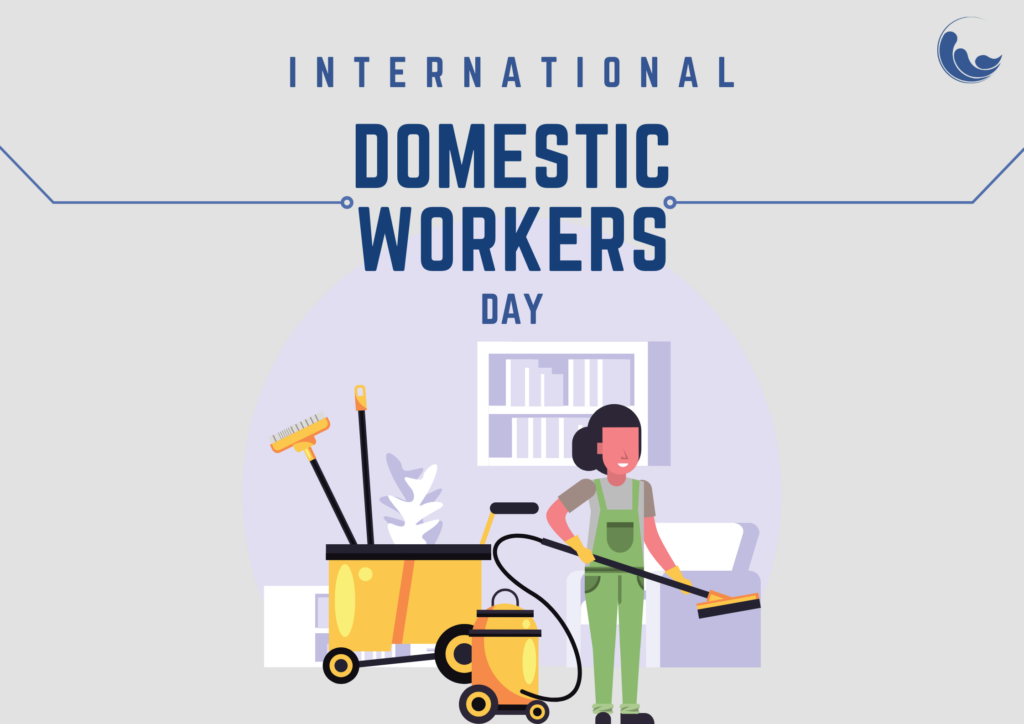
June 16: “International Domestic Workers Day”
On June 16, 2011, the International Labour Organization (ILO) adopted Convention No. 189 on Decent Work for Domestic Workers, marking the inception of International Domestic Workers Day. Domestic workers are workers who perform various household tasks, such as cleaning, cooking, child care, elderly care, patient care, gardening, or driving for the employer’s family. They are doing essential work that should be considered care work.
The Ministry of Labor has pushed forward Ministerial Regulation No. 15 (2024) under the Labour Protection Act B.E. 2541 (1998), which was published in the Royal Gazette and came into effect on April 30, 2024. This regulation enhances protection for domestic workers in 11 areas. However, domestic workers are still not covered under Social Security Act Section 33.
The Department of Informal Labor Protection, Ministry of Labor, has stated that the Social Security Office is currently reviewing this matter. In the meantime, domestic workers are advised to register under Social Security Act Section 40 for relevant benefits.
Source: Prachatai
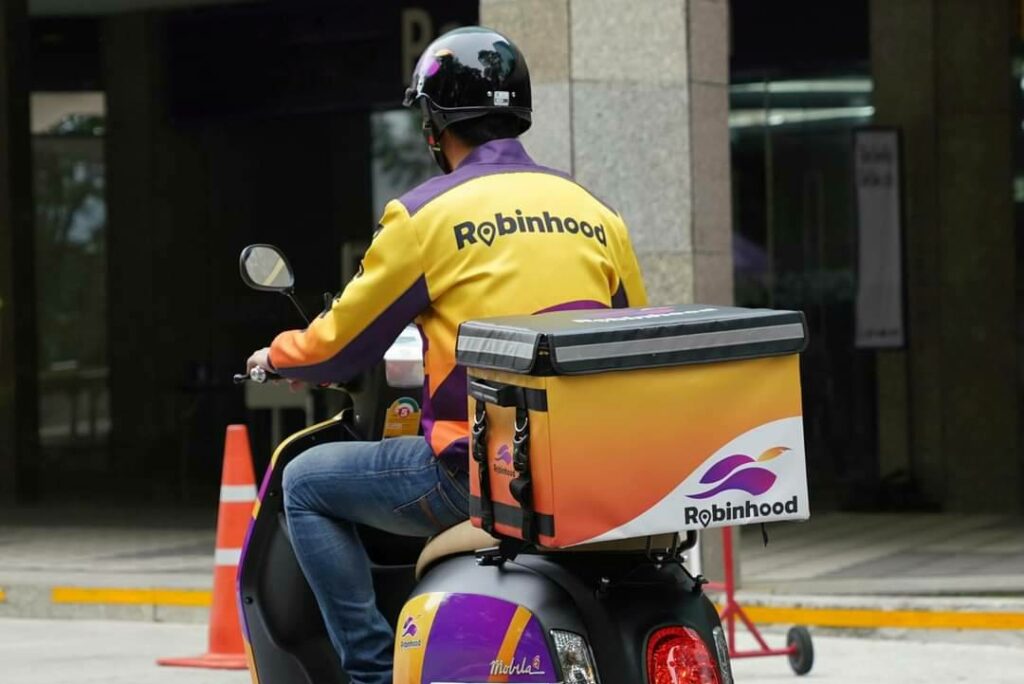
Photo by Prachachat
SCBX Announces Termination of Robinhood Application Service
On June 25, 2024, SCBX issued a statement announcing the termination of the Robinhood application service provided by Purple Ventures, a subsidiary of the SCBX group. The service will end on July 31, 2024, at 8:00 PM. Robinhood is a Thai delivery platform launched during the COVID-19 pandemic. The initial principle of the app was that there would be no fees charged to merchants, no subscription fees, and no Gross Profit (GP) fees. Customers would pay for food and delivery as per actual costs.
Currently, Robinhood has about 3 million platform users. However, the business model, designed as a CSR initiative by SCBX, made it impossible for the Food Delivery business to be profitable on its own. Subsequently, Robinhood expanded into other businesses beyond Food Delivery, such as Robinhood Mart, Robinhood Express, Robinhood Ride Hailing, and Robinhood Travel. The termination of this service will affect not only merchants and
consumers but also the work of riders, especially those who rely solely on the Robinhood platform for their jobs. This includes potential changes that may follow from other platform companies, such as adjustments in pay per order rate, particularly in markets with reduced Food Delivery providers.
Source: Workpoint Today, Thairath
